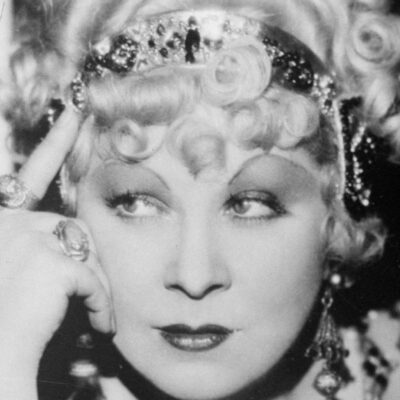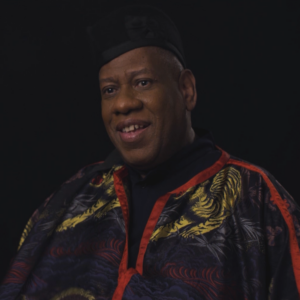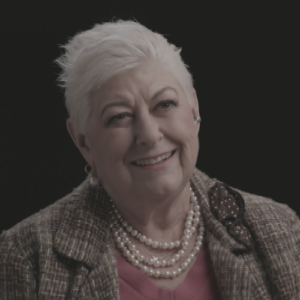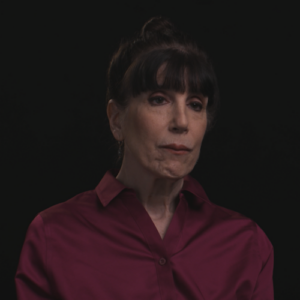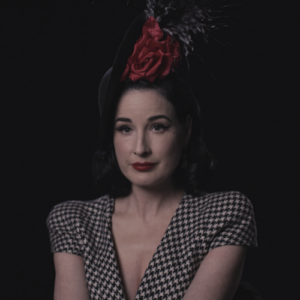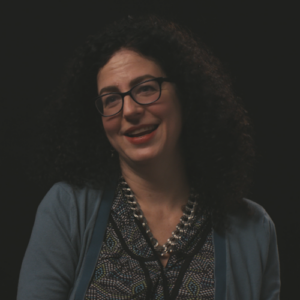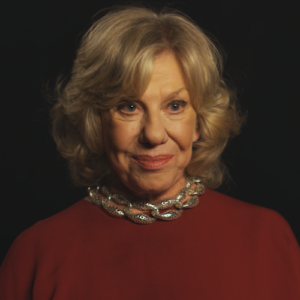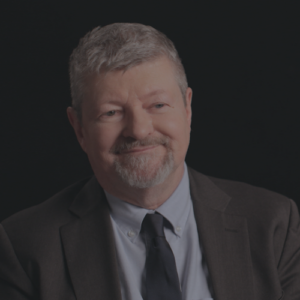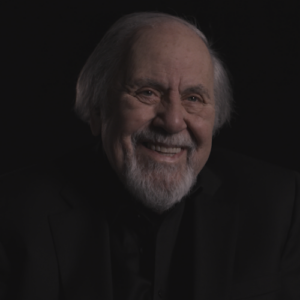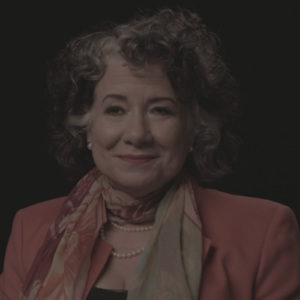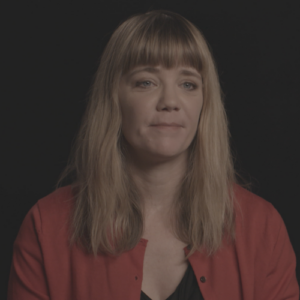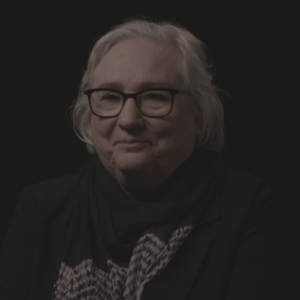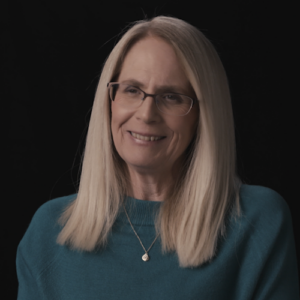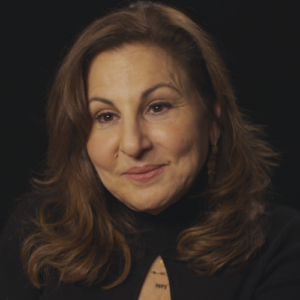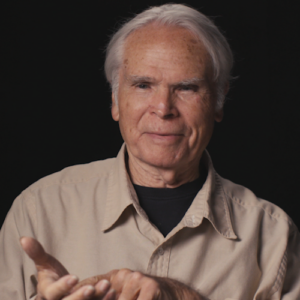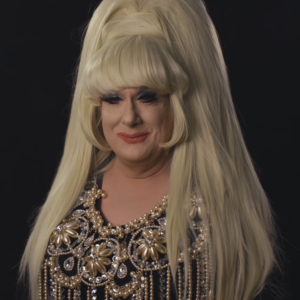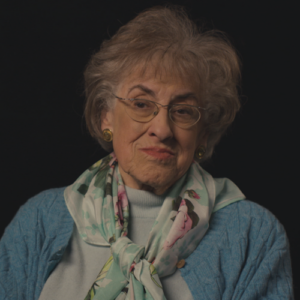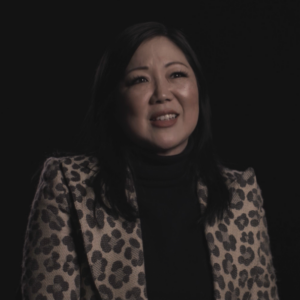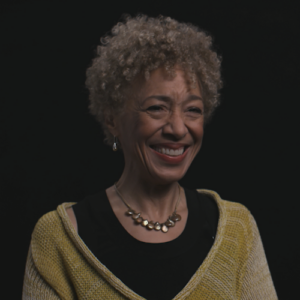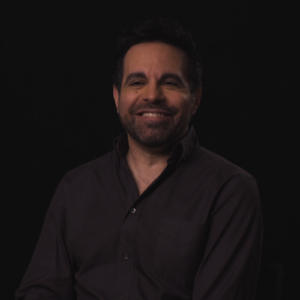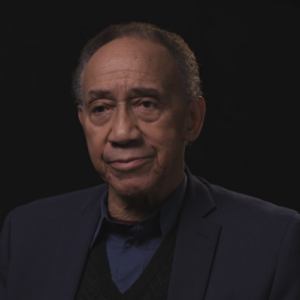Interviewer: Can we start? Just tell me your name and your profession.
Ian Whitcomb: My name is Ian Wood, and my profession is entertainer, author, writer, broadcaster, gadfly.
Interviewer: Gadfly. So can you sort of briefly, briefly describe the events that led up to you working with Mae West in the Sixties when.
Ian Whitcomb: I was her last record producer? The circumstances in detail are that I was I was with a record company called Tower Records, Part of Capital, and I had a hit record and a top ten call You Turn Me On an orgasmic panting song. And a friend of mine who is an Englishman called David Mallett, met me at Mae West through somebody called Stephen Pappas, and he persuaded her to make a rock and roll record. So when he made the record for Tower Records is my label, he used two of my songs You Turn Me On the orgasmic song Heavy Breathing and a song called Nervous Session recorded Songs. I was thrilled because I’d always been a fan of Mae West. A whole family was a fan of Mae West. My mother loved her. My mother loved Mae West jokes, and she used to tell a joke about how Mae West was sitting on the top of Big Ben in London, waiting for the big hand to come up. I told that joke to Mae West conscience, she roared with laughter. She cackled. My mother, although I must say, because I’m English, as you can tell, you’re always rather repressed in your upper middle class family about sex. We always thought sex was rather serious and comic an absurd activity. So my mother always referred to sex as dirty sheets. So whenever she saw a sex scene seen on film, she used to shout dirty sheets. But she liked Mae West because Mae West saw sex as something very comic, which, of course it is. Sex is very funny, very comic. And Mae West suggests that she saw she saw Menace as her victims. And she she saw them as people to be exploited cause she she she came about in an age where women were exploited greatly. And she was the first feminist really, who actually saw it through. In vaudeville, she would go back to the vaudeville days.
Interviewer: Well, tell me, you know. So you saw her movies when you were young?
Ian Whitcomb: Yes, I went to the British Film Institute in London. They had a whole night of Mae West films. She’d done em wrong, which I loved. No, the British always loved her films. I thought they were very funny, very witty. And of course, the RAAF had immortalized her with a life show which was called Mae West. So Mae West was a household name in Britain. So I loved her films. So I was thrilled when I heard my friend David Mallett was going to make an LP and cut two of my songs. So he said, You’re coming with me and you must shut up. As you can tell, I’m very loquacious. So you said, When you meet us, Miss West, I’ll call her dear, and you must be very quiet. So we met and she was very nice. And she liked me a lot. I, of course, adored her. Our apartment was off White. Looked like a rejected MGM set some low in the 14th or something, and she was very nice. And I sat in her very comfortable chairs and she used to say, Would you like a drink? I have some hot stuff, but I’m sure she didn’t like she didn’t not like alcohol. And so I said, no, I’ll have a soft drink, which she approved of. So we got along very well. The album, which was called Well West, came out on Tower Records and a few years went by and I thought, Let’s make a more raunchy rock and roll record. So I went to her and she said she’d like to make one. So we got in touch with my club. It became the lieutenant governor of California, and he had a record company. He gave us some money, so I’d picture all the songs for her on Great Balls of Fire. She sang Great Balls of Fire, and when she said bulls, she meant balls. She. She sang that Whole Lotta Shakin Goin On Light My Fire, Which was interesting. On the doors at the end of the recording, we hear sirens and I come up and say and say, Where’s the fire? And she says, In your eyes, big boy. In your eyes.
Interviewer: That was your voice.
Ian Whitcomb: Yes, that’s me. I played on the record. I played the piano and all the tracks. And we we recorded them all. Rehearsed them at her in her apartment, just she and I. And we changed a lot of the words. I would sit at her feet and I would throw her lines to change because she said she couldn’t sing some of these lines. So happy Birthday, Sweet 16 became her nickname. Happy Birthday 21. She said she was too old to have a boy of 16. So I changed 21 and changed a lot of the words. And it was interesting experience because I sat feet and threw lines at her and she’d say, Miss West wouldn’t have said that. Try again, dear. She saw herself as a separate person when she was when she was on the screen. She was the raunchy Mae West. But when she was off the screen, she was very grandmotherly, I call it. She’s like an Earth mother. She was very, very sweet and very, very aunt like she was. Almost like my aunt when I used to arrive to rehearse. So she always made me lunch. She made me a tuna fish sandwich and a pie. She was always very sweet. Watch me eat it.
Interviewer: Did you have a sense? So when you met her, she was probably in her 70.
Ian Whitcomb: Well, we never quite sure how old she actually was. Probably in her late seventies. But she always came to the apartment, came into the room in a diaphanous negligee. There was always a routine ritual. You go to the door. 611. The Ravenswood. And then you’d knock on the door and ring a bell and a voice and an eye would appear through peephole, whether it was her or Mr. Novak. It was a constant companion, I don’t know. But the door was open. Mr. Novak would usher you in. You sit there and wait for about 10 minutes, and then she would appear and she’d always go, Oh. So she was surprised to see you. Oh, it’s just a surprise. So we’d sit down and then we’d start to rehearse the songs. She was never a problem. She’d enjoyed all the songs. I managed to persuade her to sing. Sing a song from her vaudeville days called The Grizzly Bear, which was written by Irving Berlin. She didn’t really want to sing all the songs. She wanted to be modern and up to date, sing rock and roll songs. But she eventually persuaded to sing The Grizzly Bear by telling her that we’d had sound effects of of of bears and lions. And she loved She was obsessed with the circus. So we had her sing with with animal sounds behind that one. So I sat with her between rehearsals and asked about her sex life and about her first sexual experience. She said, My first sexual experience was she said I had a dream about a bear having sex with me. She said he had a huge thing. I said, Well, what what was it like? She said, It was wonderful.
Interviewer: Was there a sense when you met her that she was sort of this relic who was trying to stay modern or was was there anything sort of desperate that you felt about her?
Ian Whitcomb: I never felt that she was she was the greatest experience. I never have had working with someone in show business. And I’ve worked with a few I worked with Raquel Welch, who, by the way, she’d made Myra Breckinridge with. When I mentioned Raquel Welch, she wouldn’t say her name. She called a certain party. A certain party she couldn’t stand. Barbara Stanwyck, the film star, because in the thirties, Barbara Stanwyck had played a number of very sexy parts, and Mae West felt she still in her act. So Mae West called her that Stanek Stanek She called her. So what was I talking about?
Interviewer: Yeah. So she felt very competitive with women.
Ian Whitcomb: She never liked women much except her sister, Beverly, who she was very, very kind to. Beverly had had a problem with drink. Every now and then, Beverly would would fit past the door of her apartment, slightly unsteady. And Mae would say to me, you know, she’s had a problem with the booze. But Beverly had made a record, which Mae West played to me once. And I remember being very touched because as she played the record, Mae West began to cry. She was so she was very close to her sister. She was very close to her family. She was very actually sweet, very sweet, very motherly.
Interviewer: So you think there was a big difference between Mae West, the personality, and Mae West, the person?
Ian Whitcomb: Yes. At least when I knew her, she was very fit. And also when I read about directors she worked with, she always liked them very much, Leo Mccarey and so forth. She got on with them very well. Then she liked her first director, Oshima, who made night After Night with George Raft. George Roche, of course, had been her boyfriend and she stole a lot of pictures. He said she stole everything but the cameras. She’s wonderful in night after night. I’ve got a copy of that film.
Interviewer: Did you find when you went to work with her that she was a very musical person, that she had a real knack for music?
Ian Whitcomb: Well, she loved songs and she loved particularly loved Black Blues of the Twenties. She was what we what was called in the days when she began in vaudeville, a white coon singer. They called them coon songs and songs about black people. And she was a great singer of coon songs. And she was a a blue shout out to other singers in that time. She must see her in isolation, though all the singers like Possum Sealy and Cynthia Tucker, who she didn’t like much and who see who are singing in the American vernacular black style. And she was certainly part of that. But she told me when she recorded Grizzly Bear, which was written in 1910, she showed me how she sang it on stage. She never got into trouble for words. She used to tell me she did the song with special actions, which meant doing the grease shoot it through in the grizzly bear. She would follow her breast and then go down below. She did special actions, which means much sexier.
Interviewer: Did did you find her to be very conscious about what other people thought about her? Well, she worried about her image.
Ian Whitcomb: And we never talked about that. We just talked about music. She had what I loved about her. She lives in her and she had created her own world. She lived in that world completely. She was sealed off in the Ravenswood with Mr. Novak taking care of a carnival of groceries. In fact, I once wrote a piece about her, or I said, Mr. Novak walked through the apartment carrying groceries, and she said to me, Don’t ever mention that stores don’t have groceries. She said, You must understand, the animal wants to store groceries. Stores don’t have groceries, so don’t mention that anymore. I also in the article called her Westie She didn’t like. My brother said, Don’t call me Westy. You can call me dear. So I called her dear from then on, but I didn’t use oh, she was aware of anybody making fun of her. By that time I was about to need six issues, but she’d become a very great name again because it was the great revival of the past of W.C. Fields and the Marx Brothers and also some. She was seen with enormous respect. But people used to say to me, I used to get rather annoyed. They’d say, Is she a man who’s a nutritional man? I don’t know. Some sort of rumor going around that she was actually a man in drag. She was. She was so feminine.
Interviewer: Why would you why why did that rumor exist? You know.
Ian Whitcomb: I think possibly because, see, the gay the gay population wanted to see her as one of their own and wanted to pretend that she was actually a man. I just my guess, I don’t know. But we never talked about much that much. But she lived completely in her own world in that lovely apartment she didn’t go to. She didn’t go out. Occasionally she went out. She came out to see me once at the Mayfair Musical in Santa monica. We thought we had a picture of that. She came and saw me perform and apparently I would tell jokes on stage to the big laugh. And then later in the way a raucous laugh from Mae West, because you hadn’t heard the joke that her her companion told her the joke. So she actually got mobbed in the ladies room, by the way. She liked being mobbed.
Interviewer: Do you have a sense that you have friends, that you have people that she confided in?
Ian Whitcomb: I don’t know, Mr. Novak. Maybe occasionally people in the past would come up like Mr. America 1938 came up. She chided him for having put on weight, but I’m not sure. I don’t know who her close friends were, really.
Interviewer: Can you just tell me more? Because you said before and you’ve said in other interviews that working with her was one of the most meaningful experiences of your career and you’ve done a lot in your career. So what was it about the experience?
Ian Whitcomb: Because she was a real star. She knew exactly what her persona was because she created that from scratch from the 19 tens onwards. It wasn’t till the twenties that she created Domino, but she created herself. She was her own invention. I really I really respected that. And she knew exactly who she was. As I said when I worked with her, she said, Mae West wouldn’t have said that. Try another line. So she used I think she worked with collaborators on her scripts. She would she worked with all the people and she knew exactly what Mae West would say, what she wouldn’t say. And her films are still very funny. She’d Done Him Wrong is the best film she’s RUGGIERI don’t diamond little but the the powers that be wouldn’t love that title on the screen because it was associated with associated with too much raucous sex so they had to change it to she’s done him wrong. Cary Grant said he learned all his comedy techniques from Mae West. She was wonderful. She knew her timing extremely well. She was timing is truly important in comedy. And Cary Grant said he learned from her.
Interviewer: Well, she is funny in person in real life as she was in the movies.
Ian Whitcomb: Where she was shooting crack. One joke to me, she went to the Magic Castle in Magician’s Haunt, and then she said. I’ve never liked the joke the illusion of sewing amounted to because I’ve always enjoyed both ends. And then she was a very cook. She had a very raucous laugh. She certainly laughed at jokes, I told her. I told her my mother’s Mae West jokes and she laughed at them.
Interviewer: Do you think she did? Actually was as sexual and interested, as interested in men as she pretended to be? Was it an act?
Ian Whitcomb: No. I think she loved to love. Men should love musclemen. She’d had. She’d been married twice, first of all, to a man called Wallace. And then she was married to an accordion player called Guido. You’ll have to look it up. Dear, dear. I play his records on my radio show sometimes. And she was actually married to him for about four years. She was actually committing bigamy because the the marriage to Wallace wasn’t wasn’t annulled in the thirties, I think. But I asked her about marriage and she said I never liked it much. She said, don’t get married here.
Interviewer: Did she like men that she could control?
Ian Whitcomb: I actually don’t know. But she certainly liked men as opposed to women. As I said, she didn’t like Barbara Stanwyck or Raquel Welch or any other women much. She loved men. I wrote a song which was on the LP called Men I’ll Take It Big or Small on the rocks. Big lights on the record. Men. Yes.
Interviewer: By the way, did you have to get permission from the doors to to now?
Ian Whitcomb: Because you don’t have to get permission once the song is published. Anybody can record it as long as you pay the publishers. So you didn’t have to get permission? No. When I put the line at the end. Where’s the file? Where’s the file? I think they were thrilled to have the song recorded, as was Howard Greenfield, who wrote Happy Birthday Sweet 16. When I changed it to Happy Birthday 21. I met him and he said he was thrilled about recording.
Interviewer: So this was sixties and seventies and, you know, the height of the hippie revolution and lots of great music. Was she aware and interested in what was going on in the social in the context?
Ian Whitcomb: She loved black music. She was obsessed with Aretha Franklin, who she called Rita Frankl, that Rita Frankl. So she always loved black music from the twenties. She loved Bessie Smith, all the black blues singers of the twenties. She learned back in the teens. She must have seen black singers then. And of course, the white singers like Possum Sealy, who are copying the ragtime singers. She came up through the ragtime era. So she sang. I thought she sang very well. She never had a very good sense of time. So when we recorded, we recorded, by the way, the backing tracks and Great Balls of Fire were done first. And then she came into the studio and behind a screen we added her voice. She didn’t have a very good sense of time, so I have to point out, when she came in, did you point to her to come in? I was very excited because when we recorded those songs, Mr. Novak came and he brought tea with him. We broke for tea with sandwiches and things. I noticed a big bulge in Mr. Novak’s waist. He had a gun there. So the find in case I said something untoward, he would go for his gun. So we had tea in the set and afterwards she was we finished the recordings and one session and the engineer came and said, there’s a band waiting to come in the record. She said, What color are they? I said, Black said, No, let me through. I want to see them. So she took away the screen and she walked right through this phalanx of black men. They all cheered her. It was such fans of Mae West. She absolutely loved black singers and black performers. That was really quite historic.
Interviewer: So what was this deal? A story with the gun, though? Did he actually pull the gun out?
Ian Whitcomb: No, he didn’t have to because I wasn’t rude to him, didn’t say anything untoward.
Interviewer: But he was a real protector.
Ian Whitcomb: Yes. He had always had a gun with him. And he drove the car for a big limousine. I never went into a bedroom, by the way. People used to say to me, Did you ever want to have sex with you? No. She was always very she was like an arm to me. I guess I wasn’t her type often. She was very nice. Insisted she made a lunch for me, and I used to answer the phone for the phone rings to go and see which is dear someone. So into the phone and woman’s spoken, just like I said. Who is it? It’s Mae West, a woman imitating her. So I said to Miss West is a woman pretending to be on the phone. She said, Let me speak to her. So she went up the phone, said, Hello, this is Mae West. The woman said, This is my wife, Cindy. They spoke for about 10 minutes, both pretending to be men, both pretending to be men pretending to be Mae West.
Interviewer: Who was this woman?
Ian Whitcomb: She created a fan. She loved having phone calls. I once had to put down the phone on George Cukor, the famous director who called, and she said, Who is George? George Cukor said, No, I’m not speaking to him. He was very annoyed by the way they blame him.
Interviewer: How did you get involved with the film Sex tape?
Ian Whitcomb: Am I speaking too fast? No. Is this good stuff? Yeah, it’s.
Interviewer: Great.
Ian Whitcomb: Well, I don’t think she should ever have made sex tape her last successful. Her last proper film was for his son. And of course, she made a pregnancy issue she was good in. And a couple of young men brings in them. I don’t know how where they got the money from dubious sources. I think one should make sense that she’d written it a long time ago. So of course, she couldn’t say no. And so she got involved some very dubious people. I was supposed to do the music for it. I started recording the songs, but then they got rid of me. So in the end, she only did in the film. They did my song. They just took the song off the record. Happy Birthday. 21, which is in a gym where she sings this young man. That was my recording. Well, I’m playing the piano on that. They shouldn’t have done that. Eventually, you had to pay. We had to sue them. But that’s. That was my own involvement. But I didn’t. I was there on the set, of course. Can use. The British director had terrible problems with that because she couldn’t have everyone. They put an earpiece in her and fed the lines once one day, apparently they fell. She got her amps, got mixed up with the radio station, news reports. And the newsman said, there’s a traffic build up. I’ll make four or five. You said there’s a traffic build up in a four and five. And then can you said, I want you to walk and don’t stop till I tell you. But the day things went wrong, she walked straight to the set. I’m sorry I shouldn’t tell about her because she was too old. She shouldn’t have done it. She shouldn’t have done that film. It’s got all these stars in it, like Ringo Starr and Keith Moon. And even George Raft has one scene in an elevator, wasn’t it? And she shouldn’t have done that film, I don’t think.
Interviewer: Do you think it was embarrassing for her?
Ian Whitcomb: I think she’s she was always a trooper and wanted to keep working all her life. Edith Head was her costume. Edith said it was a famous costume she should have done. I think she just couldn’t resist appearing playing. She was. I admire her for that. She could not. She wants to always be a performer.
Interviewer: She liked the tension, right?
Ian Whitcomb: Well, I’m not sure of that. I think she just wanted she was a trooper, a real trooper in the old vaudeville sense, the way the show must go on. But there is it comes a time, as I should know, too, at my age, when you just have to stop. You can’t do it any more.
Interviewer: Did you feel that it was sort of untoward for her to be acting sexy in an age in her eighties? Did you think that was sort of embarrassing for her, or was it?
Ian Whitcomb: Well, she wasn’t sexy in the sense of throwing out her bosom or shaking her hips or putting a hand on her hips. She always, when I saw her, wore diaphanous negligees and I thought it was rather graceful. So she didn’t do it certainly to me when we were rehearsing. Nor one I saw in public. No. When she came to the Mayfair to see me perform. She actually quite normal. Then. I didn’t find it like that. I found a very graceful, gracious, graceful and very civilized. So my experiences with her were nothing but pleasurable, had nothing. But I have nothing but respect for her.
Interviewer: Do you remember the last time you saw her?
Ian Whitcomb: I think when we recorded, we recorded some later tracks for Great Balls of Fire, and I took her in the studio again, I think. I then went up to see her in her apartment the year after that. She seemed fine at the time, was very happy with our recording. She loved her recording of Great Balls of Fire. She was very pretty pleased with them and I was very pleased to have worked with her. It was the greatest thrill of my life to work with. She was truly a great star. A real star on the last of the real film stars. Who knew what she could do? I wish I’d known what she couldn’t do, but I really admired her tremendously. I’ll tell you one more story. I was with the ones who were rehearsing in the sixties. An English journalist came up. This is an example of how she lived in a world in which journalists who just come back from Vietnam called Gavin Young of The London Observer. She said, Where are you from, Mr. Gavin Shackleton? He said, Well, I’ve just come back from Vietnam. She said, What’s going on? That this is a war? She said, Who’s in charge? He said, And could she mention who knew who she who she What does he do? He said, she’s it. She said he said he’s in charge. Say, what kind of a war is this? Do you think the boys will come home by Christmas? Which was referring to World War One. So what I loved about her was she was completely in another world. She was still thinking in terms of World War One. I love the fact that she wasn’t affected by the modern world. She was still living in the 1930s or even twenties. I remember the fact that she was not connected with the modern world. I don’t blame her, quite frankly, because the modern world is a ghastly place.
Interviewer: But to not know that there’s a war going on in Vietnam.
Ian Whitcomb: I don’t think she was aware of that.
Interviewer: You had to work hard to avoid knowing well.
Ian Whitcomb: She didn’t read papers. She just heard what she wanted to know. I’m sure Mr. Novak didn’t tell her what was going on. So I admire her for that. For living completely as Mae West in Mae West World, which I think was the world of the 19 tens and the 1890s. And her father, of course, was back in the West, the boxer who she treated very well and had him come out to Hollywood and live there. She wasn’t treated very well by her family.
Interviewer: Did you ever meet any of her family.
Ian Whitcomb: Except for Beverly, her sister? She treated very well and took care of she took care of people all the time. She was very, very good. Very generous indeed. Extremely generous. As you can tell, I have nothing but admiration for how love, how her words set against her. She was absolutely wonderful and I was so proud to work with her. I think I’ll tell you all I’ve told you all my memoirs stories now.
Interviewer: What do you think in general is her legacy as a as an entertainer, as a performer? What is why should people today know about her?
Ian Whitcomb: She so she she showed that women could be in control. Women could control men. After all, when she began, women were seen as second class citizens who didn’t have the vote. They were seen as people who should grow up just to be housewives and be meek and mild. She showed that women could control men, certainly sexually, and she made sex into a fun thing. Into a thing you would laugh at and have fun with. So she, of course, offended the people, the keepers of morals. She was partly responsible for the production code for Hays Office. Come in and bring. She really offended them because they were just hypocrites, because they were all carrying on. The same with other women. And so she liberated. She was one of the first true liberationist women’s lives. But she never she never did it as a sort of propagandist thing. She did it through humor, which is the great thing of all, to do it through humor. So she she liberated women through humor. She showed that they could they could dominate men to.
Interviewer: Do you think she would have called herself a feminist?
Ian Whitcomb: No, she didn’t know that word. She just she just she was a woman. She was a great businesswoman, too. So she she ran her own wrote her own plays. Run, run. Production companies really directed her own films. So she was one of the first women in films to be in control. She certainly when she was at Paramount, she knew Control Paramount because Paramount was in receivership, going bankrupt. And so she hadn’t she had an obstacle on her thumb. So she really controlled the studio. She was one of the first women of power in Hollywood. Oh, she she was the first woman in power in Hollywood.
Interviewer: Did your mother ever know that you worked with her? Did she she live with you?
Ian Whitcomb: Yes. She was very thrilled about that. My mother was still alive and loved Mae West. We loved her, was thrilled that I’d worked with her. And I was thrilled I’d work with them, too.
Interviewer: Do you think there’s something that British people and I don’t know, I haven’t heard much about British fans of her husband, English people in their repressed repression. This, you know, repressed nature about sexuality. Would have loved her more because they she allowed them to laugh.
Ian Whitcomb: About how she was doing things and showing things in her movements and cracks in women that the British people couldn’t do because they were so repressed. As I said, my family was quite repressed and we didn’t know each other and and all that stuff. My mother would shout dirty sheets for Nancy. Sex scene came on, Daisy sheets came on.
Interviewer: I love the Big Ben joke. I mean that’s.
Ian Whitcomb: My where she was sitting on the big bend waiting for the big hand to come up. Also she when Mae West came through customs, she was holding a cat and and the customs man said. Said, Jim, can I have a shot of you and your pussy? She when she said yes, somebody must hold the cat. Sorry. I’m sorry. One can’t do that on television.
Interviewer: Your mom’s joke also.
Ian Whitcomb: Yes, I was. My mom loved those. So she my mother saw sex and my whole family as something very humorous, something I had to get over with.
Interviewer: Right. Well, Mae Mae West took the shame out of it, right?
Ian Whitcomb: Yes, son. It helped me and my mother and Mae certainly helped me take the shame out of sex. Now I’m too old for sex, but she certainly helped me in my sexual life as a rock and roll star. I was able to have no more shame and embarrassment about it.
Interviewer: Did she ever consult? Did you ever consult her about your love life?
Ian Whitcomb: Never. I didn’t. But she I once went for an audition for a film, and she inspected my teeth beforehand. She was obsessed with teeth. She said, Are those your real teeth? I said, Yes. And we look at them. She said, Well, they’re wonderful. She just had my collar and looked at my teeth and said, Now I can go, dear. You’re ready to go? She pulled up my collar, especially my teeth, and said, Now you’re ready, dear. She always saw me as a fellow star. She was I was a star for a while. And she saw that as and she said, You must act more like a star. Oh, she called me dear, actually. Comedy is just good stuff. And making you laugh anyway.
Interviewer: Did you ever get into any of her seances or her psychics?
Ian Whitcomb: Yes, I did. She says seances in the lobby of the Ravenswood with a man, rather dubious man. Is he still alive, Dr. Ireland? I don’t know. Well, I have to be careful. I thought it was a fake. But she would. He would do. He would do what’s really a magic act. It was a magic act. Something to see the magic castle. And. But she said he’s. She said to me he’s got a thousand. He should he believe she really believe in spiritualism? Very much so. She was very, very spiritual. I’m not sure she was Christian, but she believed in spiritualism. She also said that she was descended from James, the first from Scotland. I guess that’s why she liked me. She saw herself as being from the English royalty. But again, I liked all these things I never despised. I found it very, very quaint and very cute and very endearing.
Interviewer: You know, it’s interesting when you’re saying she was living in the 19 tens, but, yes, she was really ahead of her time also. I mean, she was the health food, right? She knew.
Ian Whitcomb: Yes. Always, you know. Yes, she was.
Interviewer: Would you say that she was sort of more modern than her time?
Ian Whitcomb: I think she was always more modern where she got it from, I don’t know. Maybe from her mother. I don’t know. I don’t know. But she was very modern, always modern. Right. The way through her life. Right away in vaudeville days, she did. She was always doing sexy moves. And so she was liberating women from the corsets of the Victorian era and becoming very modern.
Interviewer: Well, you helped her with her identity getting into rock and roll, right? You were.
Ian Whitcomb: Well, I thought. I thought she. She liked these songs. Great Balls of Fire. I changed the world so that I just had a line. I’d like to see you when you’re in the gym. Just making sure you don’t get too thin. Drive me crazy. Goodness gracious. Great balls of fire.
Interviewer: She liked that one.
Ian Whitcomb: Yes. And else also we do heard a song called Harmonious with Miss West One World Peace, when she goes to the United Nations and by shaking her thing, gets them all to agree to world peace.
Interviewer: Does that. That was supposed to be a movie.
Ian Whitcomb: It was. It was really the basic, basic theme of Sextet. They didn’t use much of it in the end.
Interviewer: Ireland is dead.
Interviewer: Okay.
Ian Whitcomb: I want to say.
Interviewer: Ireland is dead, the doctor. Though not the doctor…
Ian Whitcomb: He’s dead. So I can see anything I like. Everyone. I thought it was a bit of a phony. Quite honestly, I think he was known in magic circles as being a phony, too. Doesn’t know she believes in. And that’s the point. She believed in him. She believe in spiritualism, and I think that’s good. Did she believes in something spiritual? I hope she’s somewhere up above now, having a good time. Thanks, John. Yeah, thanks for checking on that. He wasn’t a real doctor. I think he was a doctor of peace. Dr. B.S. says.
Interviewer: She wasn’t treated very fairly by her family.
Ian Whitcomb: When I do nothing, I think. I think her father was. Was never was in very good jobs. He couldn’t keep jobs for long. She got him a job in the studios. Nothing. Even he pulls that off. But I think she liked him. As a mother. I’m not you looking to was I’m not quite clear about. She never talked about her about her family much. She didn’t she just missed her marriage completely. To me, what was interesting was she was more interested in talking to me, funny about my background. And she wasn’t herself. She was very selfless in that sense. She liked to talk. She was interested in other people, interested in me and how my career was going. That’s why she came down to my show. I was so thrilled. She came to see me perform. As you’ll see in the photograph.
Interviewer: So she didn’t talk much about her past?
Ian Whitcomb: I didn’t ask her much, although one day I came into rehearsal and I saw a sitting in front of a black and white TV watching herself and one of her old films and roared with laughter. I thought that was lovely. She really enjoyed her films. I didn’t talk about her past much. Now I know much about her having read books about her. But I mean, I got sheet music over from 1910 or sent a song called and then she’s on the cover of that. I thought she sang very well. She started out in a classic blues style. The white blues singers like Marion Harris, who was a great white singer of the time, and Sophie Tucker. I was. I was I was I was careful not to bring up Sophie Tucker too much because I think she saw Sophie Tucker as a bit of a rival. There were both women who traded on sex.
Interviewer: Yeah, she could get a little jealous of her rivals.
Ian Whitcomb: She didn’t like women much who were in the business. She saw them as having stolen her act, which she did create. Domino was a complete creation of Mae West. I don’t know of any other Lillian Russell, but she didn’t remember. Lillian Russell was from the nineties, but she didn’t. She didn’t make fun of sex. She took her sex very seriously. And so Mae West had fun with it. She saw the humor of it. She saw the humor of life. After life is a bit of a joke, isn’t it? Really? We have to see life as a joke.
Interviewer: Well, by seeing the humor in sex, she also took the power, right? Yes. Power over men by making fun of it.
Ian Whitcomb: And it was rare because men in those days in melodramas were always being women and treating them like chattel. And she didn’t have that. She wouldn’t stand for that.
Interviewer: Do you think there’s any any modern day actresses or performers who are direct descendants of her style and her philosophy.
Ian Whitcomb: Do you think met Bette Midler? Maybe. I don’t know.
Interviewer: Bette Midler is a big fan of hers.
Ian Whitcomb: I know. Yes. And as of says, he took a step, afraid to say and I don’t know because I don’t know. I’m I’m afraid I’m so old now. I don’t even take much interest in today. I don’t like today much. I certainly don’t like the music of the day. Right. All that ranting and shouting. I don’t maybe they sort of like rather.
Interviewer: Yeah, well, it’s surprising that she liked rock and roll.
Ian Whitcomb: She loved early rock and roll. She loved Elvis Presley and she loved black rock and roll R&B.
Interviewer: That’s very modern for a woman in her seventies.
Ian Whitcomb: When she always she was always kept up to date. She wanted to be up to date with everything.
Interviewer: And you sort of answer this a little bit, but I was hoping to get a little more specific when you’re were talking about the the.
Interviewer: Black singers that she liked from like the teens and twenties, Bessie Smith and others. Do you do you hear them in her delivery?
Ian Whitcomb: Yes.
Interviewer: That influenced her.
Ian Whitcomb: I think. Mae West definitely was influenced by the white blues singers of her time. I’m not sure she had a chance to see because in those days were very few black female singers involved on the stage. Bessie Smith later in the twenties. But Bessie Smith was on the black circuit to be tough on black artists. So Mae West, you would have seen her, but she certainly had seen the white women who did that style, who’s come inside in the 1890s with the coming of Ragtime. There was singers who sang in the vaudeville stage, who sang in the Black Style. There are plenty of recordings of them. Mae Irwin was one, by the way. She must have seen Mayo and sing ragtime songs about tough women, about Franklin, Johnny Mayo, and by the way, was in the first place. Up in the first film, were showing a kiss. It was called The Kiss when She Kissed a man in close up Closeup. So Mae Irwin was really the first of the hot mamas. And so Mae West was most aware of that. So when she got on stage, she joined a group. Blossom Seely was very good on the West Coast and the Barbary Coast, which was which was a street full of places of ill repute where ragtime bands played and women sang blues and dirty songs. I fall in the jack, just a dirty song. And Frankie and Johnny, of course, which Mae West made famous, was a song from 1890.
Interviewer: So she wouldn’t have known personally any black female blues singers. She wouldn’t have met them.
Ian Whitcomb: I don’t I doubted someone because she was too busy in the trenches doing her own shows on Broadway. I don’t think she’d have met them, but she certainly appreciated the record. She must have heard the records. She loved black bands and black music.
Interviewer: I mean, you got to spend time in her house, which is.
Ian Whitcomb: Why I always loved going out because it was always off white. It was slightly I must admit, it was slightly dilapidated. I think you could have done with a bit of a repainting or something. She didn’t look like she was very wealthy. She was wealthy, but she didn’t display it. So it was slightly, almost a little bit tawdry. Maybe. I used to play. I played the piano that, as I said, she used to make me lunch, a tuna sandwich. And what was the cheesecake? She loved cheesecake, so she gave me a cheesecake, which I didn’t eat. And I. I caught her eating it surreptitiously.
Interviewer: Did she stay in a lot? Did Or did she did she go out? Did she see.
Ian Whitcomb: Mr.. I think Mr. Novak took her out for drives. She because she had a house in Santa monica, she never got to go. I wish I’d been there because she had statues on the in the house of of naked men with painted gold phalluses. But I never saw any of that. So she never let me into her bedroom where she had famous mirrors, where she said, as she said she could see how she was doing. Well then she actually had only sex and not, I don’t know. So I never saw it. She never acted sexy with me. She was always very respectful to me. As I said, maybe I wasn’t her type. I mean, at that time, I was I was an idol to thousands of teenagers. But I guess I wish she had been her type. She never made any approach to me at all.
Interviewer: Were you you did you think she was sexy even then?
Ian Whitcomb: Not sexy even. I thought she was beautiful. She had a lovely, lovely face and wonderful cheekbones and lovely face. She had I think she had a cast, I think in one eye, as I remember, I slightly just seem to remember that. But she didn’t move much from her chair. She came in when she came in. When you met her for the first time, she’d always expressed surprise.
Interviewer: Oh.
Ian Whitcomb: And then walk towards you very steadily sit down. And she didn’t move from that chair, but I used to sit next to her on the couch, which was nice. So I got fairly close to her. I think she was. She was very nice to me. She called me dear, and I called her dear. She was sweet. And on the records we have some great players on the recordings, so they’re actually very good. I wish I wish they hadn’t used the vocal group on that. I made a record without any photograph on, and then Michael added his congregation, which spoils it, and she was upset by that too. The records had this awful group singing behind her, which she sang fine on her own. I wish they hadn’t done that. Of course, I made the record in 1968 and it didn’t come out till 72 when Michael Brown, MGM Records. I wish they hadn’t put it out with those that vocal group on.
Interviewer: The record do. Well.
Ian Whitcomb: I don’t think so. No. It’s not even on CD. It’s very rare you can get it online, I guess you can get on eBay. It’s a collector’s item.
Interviewer: But she had a lot of fans at that point still.
Ian Whitcomb: She still has lots of fans, but I guess they didn’t. I think they preferred her older recordings. But I was I was really thrilled to work with her new work with two other stars, Raquel Welch and Goldie Hawn. I made a record with Goldie Hawn, but Mae West was quite different. That was the real thing.
Interviewer: Sounds like a real friendship.
Ian Whitcomb: I think it was a friendship. She certainly must have remembered me because she came to see my show. So I was very fond of and very sad when she died. I don’t know how old she was. Nobody really knows when she was born.
Interviewer: I think she was about 87.
Ian Whitcomb: That’s what he said was pretty good. Yeah. Yeah. I should do so long. Exactly.
Interviewer: I mean, at this point, it’s just people who knew her, you know, intimately. It’s. It’s, you know, it’s. It’s nice to hear directly from people.
Ian Whitcomb: I think it’s very few that you’ll talk to. Have actually produced her as I did.
Interviewer: Yeah. Or were friends with her Because, like I said, I think that she was pretty sort of reclusive and especially in the later years.
Ian Whitcomb: So no issues. I have nothing but praise and fond memories of her.

